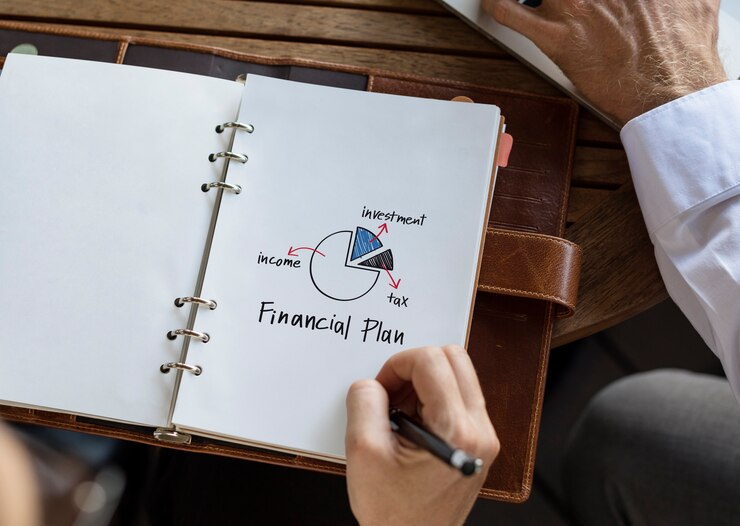Table Of Contents
How To Perform Personal Finance Planning As A Beginner?
Last Updated on: September 12th, 2025
Did you know that 56% of Americans cannot afford unexpected expenses? Also, 49% of these people don’t have savings they could tap into to pay for these kinds of things. Basically, these numbers show the importance of personal finance planning.
In fact, by planning your finances properly, you can track your finances better and remain stable. As a result, you can work your way towards financial freedom.
So, what do you need to know to plan your finances properly?
Keep reading to learn all about what you can do to plan and manage your money better.
Personal Finance Planning: A General Overview
Personal finance planning is when you manage your money to save and invest properly. Here, the goal is to achieve financial freedom in the shortest time possible. Basically, you need to consider steps like budgeting, insurance, banking, investments, mortgages, tax, retirement, etc.
Apart from that, you can also perform personal finance planning with the help of financial experts. These experts advise you on how to plan and inform you about investment opportunities.
On the other hand, your individual goals and desires also determine how you are approaching financial planning.
If you want to manage your personal finances, you need to consider the following factors – income, savings, spending, protection, and investments.
However, if you want to make the most out of your savings and income, you need to be financially savvy. Moreover, by becoming more knowledgeable about finance in general, you will be able to make financial decisions.
Apart from that, one of the major aspects of achieving financial freedom is maintaining consistency and discipline. However, it is also important to understand when you need to loosen up and not adhere to guidelines.
Steps to Perform Personal Finance Planning
The following are the steps you need to follow if you want to perform personal finance planning:
1. Identifying Your Financial Goals
Identifying your financial goals is an essential first step in personal finance planning. Also, it is important to figure out what your long-term and short-term goals are in terms of money.
Hence, you must have a solid understanding of your financial goals. As a result, you can gain more control and accountability over your money.
Apart from that, you must prioritize your financial goals by writing down a timeline for each. Also, create a plan to remain on track and act accordingly.
With a little effort, you will have a stronger hold over your finances. This will allow you to stay focused and on course with your financial goals.
2. Developing A Budget
A budget is a plan of how you will manage your income and expenses over a time period. Hence, to build an effective budget, start by tracking your income and expenses for a few weeks.
Then, calculate how much you need to save each month. Also, consider any one-time expenses. However, once you have a plan, it is important to track your progress. Thereby, you can adjust as necessary.
Basically, developing a budget can be a difficult process at first. However, it is essential to identify and maintain control of your monthly finances.
3. Putting Money Away In Savings
Putting money away in savings allows you to either make regular deposits on an automated basis or manually every month.
Generally, a great way to start doing this is by setting up an automatic transfer of a fixed amount from your checking account to your savings account each month.
This allows you to be more disciplined and conscious. Practicing good money management helps to build a strong financial foundation and achieve long-term stability.
4. Creating An Emergency Fund
You must use an emergency fund for unexpected, short-term expenses such as medical bills and car repairs. Also, it is important to have easy access to money when you truly need it.
Moreover, make sure to store your emergency fund in a safe and liquid place. However, you must be careful to withdraw funds only when necessary.
Furthermore, never deplete an emergency fund. This is a stable asset that you must always safeguard.
5. Paying Off Personal Loans
Paying personal loans is part of personal finance planning. It is wise to pay it as quickly as possible to save on interest accruing over the repayment period.
It’s also wise to downsize expenses and set aside portions of your income toward paying off your loans, as this will help keep you on track.
Additionally, refinancing or consolidating loans can be beneficial if the terms and conditions become favorable for paying off your debt quickly.
Following these steps will enable you to efficiently manage your personal financial obligations and bring you closer to becoming debt-free!
Personal Finance Planning: Your Way To Financial Freedom
Personal finance planning is an important life skill that you must never overlook. No matter where you are in life, you need to take the necessary steps to secure your financial future. This is a crucial part of being an adult.
By following the tips of this article, you can create a strong strategy for your short and long-term goals. Embracing financial security starts with you!
Do you have more suggestions for a beginner in personal finance planning? Please share your ideas and opinions in the comments section below.
Read Also:
















